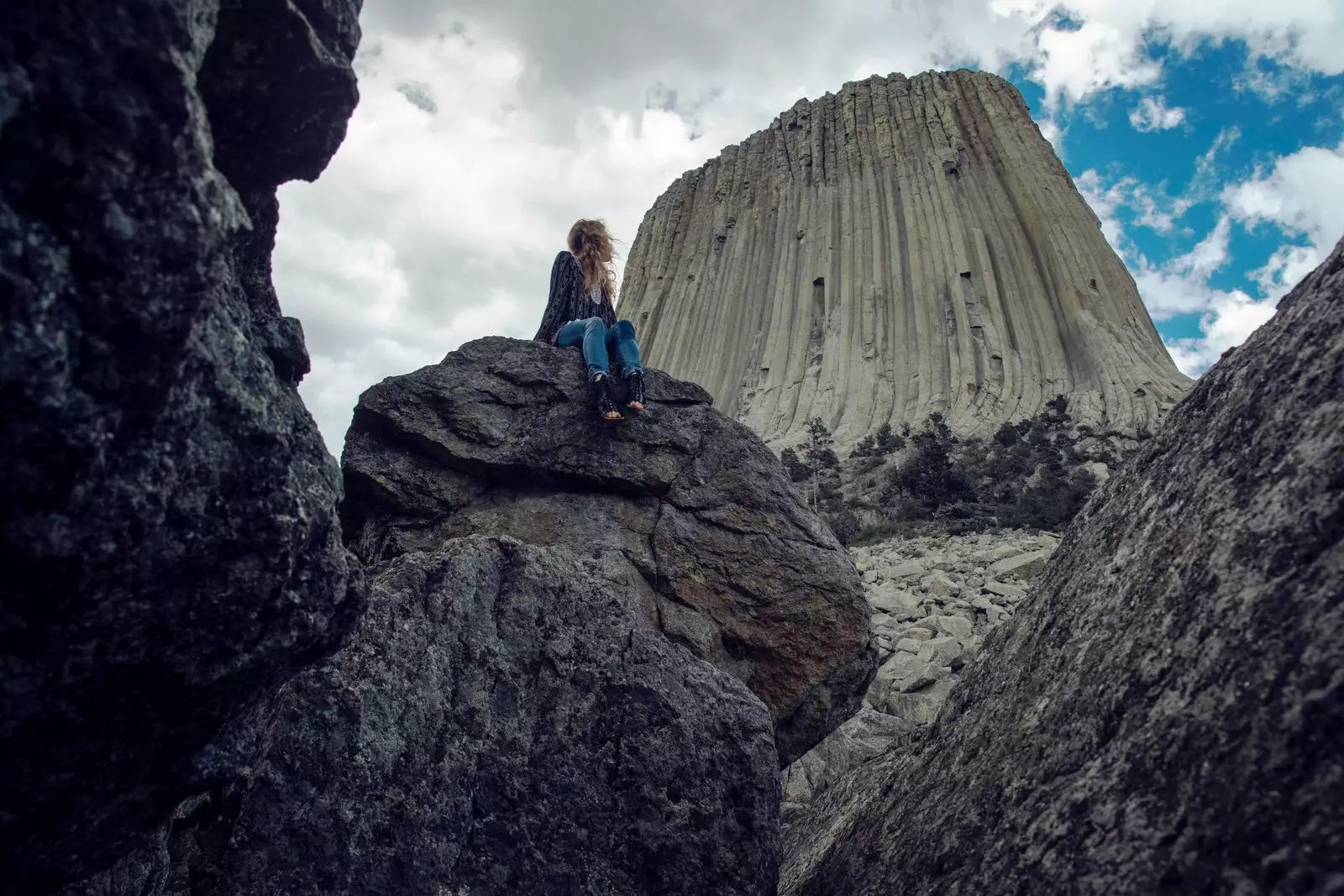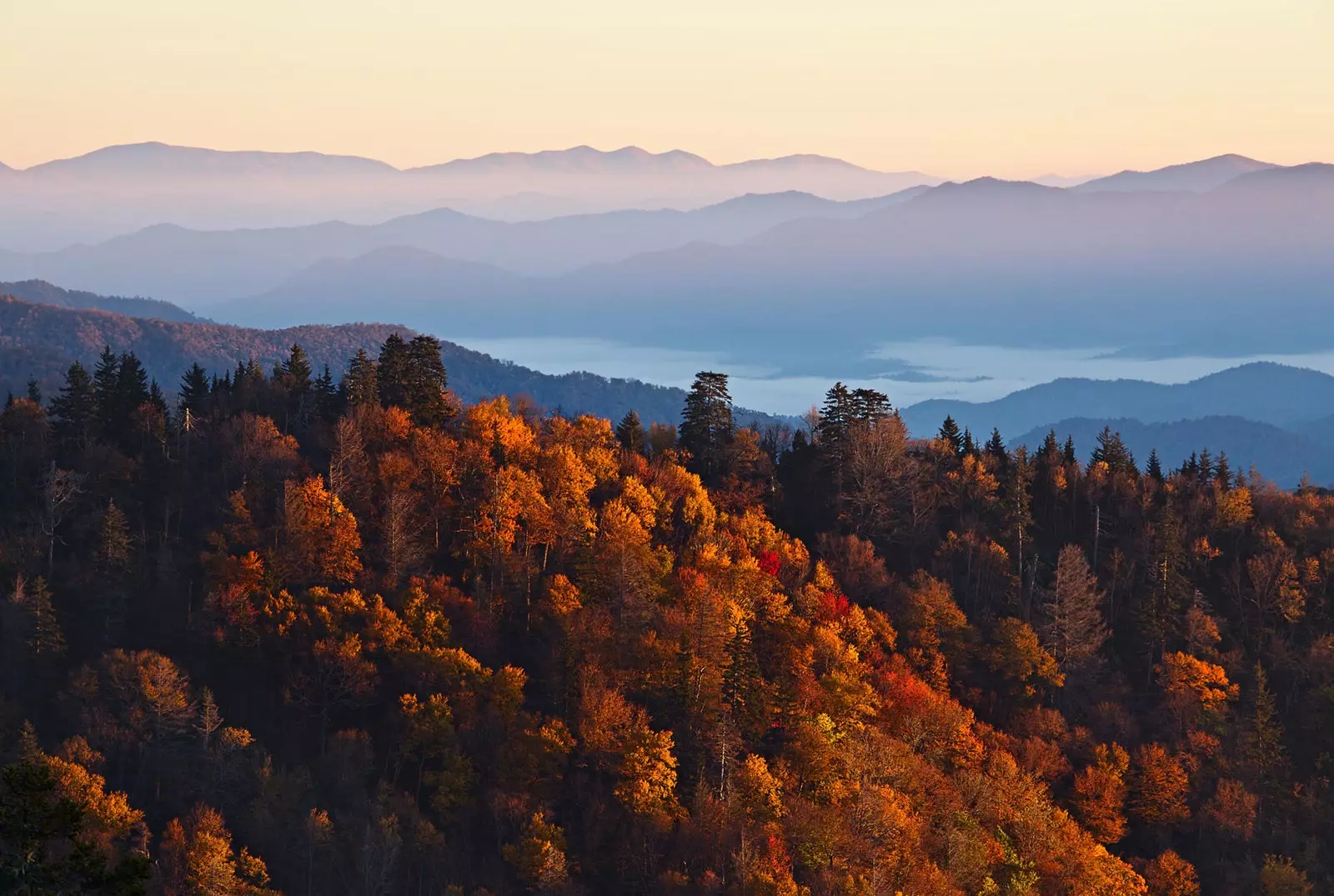
Devil's Tower, Wyoming, USA
We have spent days waiting for the results of the 2020 elections, knowing that the final summons would affect the world we live in and, crucially, how we travel.
Finally we know that Joseph R. Biden is the president-elect – and Kamala Harris the first woman, black and Indian-American elected vice president in the history of the United States – , news that Americans took to the streets to celebrate.
But although this changing of the guard has made many feel relieved, our work does not end here. The issues at stake, from from racial justice and Native rights to protecting wilderness and helping small businesses will impact travelers. And they will also continue to require hard work from each of us.

Great Smoky Mountains National Park
We have asked various travelers and activists what is the best way to stay active and connected. Here are some of the things we'll need to pay attention to in the coming days, months, and years, as well as promises from President-elect Biden (such as the 100-day immigration reform plan and re-entry into the Paris Agreement on climate change). Finally, three suggestions: who to follow to stay up to date, how to get involved and where to get more information.
PROTECT THE OUTDOORS
The Trump administration revoked important protections in wilderness areas, including the elimination of environmental protection measures to the largest national forest in the United States this same month of November. It will take organization and advocacy to undo these decisions and to promote the protection of natural spaces in the future.
“Our national parks and public lands should be enjoyed by all Americans, and they will always need advocates, regardless of election results,” says Phil Francis. Francis is the President of the Coalition to Protect America's National Parks, a nonpartisan organization made up of current, former, and retired NPS employees. with more than 40,000 years of collective experience in the management of the country's natural and cultural resources.
The Francis team posts frequent updates and calls to action on their social media channels (@protectnps on Instagram, Facebook, and Twitter), as well as on protectnps.org. Keep an eye on any of those channels to stay informed. "We will continue to advocate for general policies and actions, including push for an increase in funding for the National Park Service, stop oil and gas sales and leases that threaten resources, and ensure environmental protections are in place." Francis says.
Ambika Rajyagor, founder of Disabled & Outdoors, a BIPOC-led online community focused on outdoor representation and accessibility, she wants to make sure that these efforts are also intersectional, especially after nearly four years of policies that worked against Americans with disabilities. “There are a few ways regular travelers can participate in the fight for the rights of the disabled in post-election outdoor spaces”, Rajagor says. "For example, by advocating for the preservation of public lands, you're also advocating for the disability community to access those lands." You can follow @disablednoutdoors on Instagram, where organizers share updates on the causes they're activating. and about other voices in the community worth paying attention to.
INVEST IN INDIGENOUS COMMUNITIES
Native voters turned out in a big way in these elections, however, issues affecting native communities are rarely front and center on the national stage.
“We are paying attention to our youth and their needs,” says Amy Yeung, founder of eco-conscious clothing brand Orenda Tribe. Native communities like the Navajo people, where she lives, are among the hardest hit by the pandemic. The number of cases is high and the sources of income have been exhausted.
The Orenda Tribe has been organizing throughout the pandemic to support Native Americans. Thus, they make it easy for travelers to learn more about their needs and participate in their efforts. You can follow @orendatribe on Instagram or text ORENDA to 707070 to receive updates on their initiatives. Currently, the company is raising funds for the ADABI domestic violence shelter, for women, children and for young Diné weavers who have been affected by COVID-19. Yeung also suggests following @protectthesacred and @navajommdr on Instagram.
As we resume safe travel to national parks and open spaces, it is also essential be aware of what land we are on and our impact on it. “Be respectful of where you are traveling and the potential harm you could cause to communities,” says Yeung. “Support us instead of putting us in danger. It respects the land and the community.”
BE ACTIVELY ANTI-RACIST AS TRAVELERS
“I am paying attention to how the candidates plan to dismantle systemic racism in our country,” says Katalina Mayorga, founder of El Camino Travel. (Condé Nast Traveler USA collaborates with El Camino on Women Who Travel). "We still have a lot of work to do."
While we can push the new administration to adopt national policies that destroy historically racist systems, the responsibility of every traveler is to be actively anti-racist at home and abroad, regardless of whether we travel or not.
There are many crucial ways to be an actively anti-racist traveler: book trips and experiences led by people of color, be an ally on the road, and support the right travel companies. Paula Franklin, travel expert at Franklin Bailey, says, “Supporting more diverse businesses and voices is key. We are not providing enough support for the global diversity that we all claim to support as travelers; We all need to be much more aware of where our money is going.” She suggests booking travel through locally owned tour companies such as Eat Like a Local in Mexico City, Sebastian Tettey in Ghana, or Nuru Tours in Uganda. "All of them are businesses owned by local residents, so you're already one step ahead of booking through a large US-based operator."
There are many travelers who also educate others about anti-racism. Mayorga suggests following @travelisbetterincolor ("a coalition of media professionals who are working to dismantle the 'white gaze' in travel writing" , she explains; Franklin is one of the founders), and Cherae Robison (@sasyrae), the founder of Tastemakers Africa , which "is completely changing the Western perception of Africa and showcasing the true ingenuity, creativity and diversity of the continent" with individual and group tours. Franklin also suggests reading Irin Journal, a Lagos-based print magazine offering deep dives into African cities, with collaborators throughout the continent.
SUPPORTING SMALL TRAVEL BUSINESSES AFFECTED BY THE PANDEMIC
For months, workers in the travel industry have had their minds on one fundamental issue: "How serious and effective is the leadership in the fight against the pandemic?" asks Luis Vargas, founder of Modern Adventure, in Portland. “Lower infection rates and vaccine deployment are the paths to recovery and opening up travel, and the stimulus package that comes next will be of vital importance for many companies in this industry”.
While it is essential that we all do what we can to stop the spread of COVID-19 – and pressure leaders to do the same – there are small, short-term steps to support the travel industry and the small businesses that make travel what it is. Continue rescheduling instead of canceling existing reservations, Vargas says. He considers buy products from your favorite hotels, restaurants and bars as part of your Christmas shopping. If there are brands you love, listen to what they say they need: following your favorite travel company, or even a tour guide, and signing up for their newsletters if possible, is a quick and easy way to get their opinions about the challenges ahead. The smallest brands are often the most vulnerable and, as we all know from experience, the most irreplaceable.
Article originally published in Condé Nast Traveler USA
